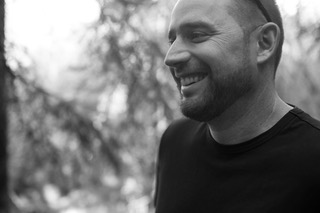ADHD LONELINESS AND FRIENDSHIP
SPENDING TOO MUCH TIME IN YOUR HEAD?
If you are feeling lonely, then you are not alone and not without help. People with ADHD may need alone time to process things because their brain feels overstimulated or overwhelmed. You may have lots of thoughts in your head or “cognitive abundance”. The demands of everyday life can pile up, you feel demotivated, demoralized, stressed and burnt out.
ARE PEOPLE WITH ADHD LONELIER?
We are social creatures by nature and need a sense of community to thrive. Anybody can feel lonely, even within a crowd of people. However, those with ADHD relate a little differently to the world around them and can feel like they don’t belong. Sometimes it is difficult to make ‘small talk’, to catch social cues, to process information on the go especially in noisy environments, with ‘zoning out’, making concentration harder or getting bored. You may end up feeling there is nobody who understands you or with whom you could ‘let your hair down’.
DIFFICULTY MAKING FRIENDS
Those with ADHD are often challenged by finding and maintaining friendships. Fortunately, there are many ways to overcome these obstacles. The first thing to understand is how your symptoms can get in the way. If you have problems with time management, then learn to prioritize your friendships and set up mutually fulfilling or interesting get-togethers. If you have social anxiety, then you could do hiking out in nature, a virtual coffee or sign up for online classes in art or yoga. You could also find new ways of connecting with people by volunteering, checking out your local community center or upcoming events in your area. When you look forward to it, you are less likely to forget about it. People want to feel that they are important and matter to you. Make a sticky note about something personal they shared i.e. what are the names of their children or who is due to have a baby? When you remember to refer to it during future conversations, they will feel that you care and value the friendship.
RELATIONSHIP BURN-OUT
At times, ADHD behaviours can cause difficulties in a relationship i.e. the non-ADHD partner feels undervalued or that their emotional needs are not met. Relationships with little connection may lead to intimacy, trust and communication issues. There are challenges and opportunities in every relationship where ADHD is present. People say they know who they want to be and what they should do. The trick though, is in noticing what is happening and how you need to change to get a better outcome.
CO-EXISTING CONDITIONS
Sometimes ADHD has secondary complications. Common conditions such as anxiety, depression or addiction increase your chances of social isolation and loneliness. Long-term isolation can erode your social skills and increase social anxiety. This can have serious health repercussions. Join a support group where you can hang out with others who understand you in a way that nobody else can.
WHAT CAN I DO?
- Try journalling. Define your fears and barriers when it comes to meeting other people.
- Ask for help. Reach out to those you trust and ask them which social skills you could improve on.
- Let others understand you better. Explain how forgetfulness or inattention are part of your ADHD, not your lack of care or affection. Being understood is something you absolutely deserve!
- Consider therapy to help with rejection sensitivity, low self-esteem, unresolved trauma and many other issues.
Please note that due to a server issue my email has had to change to rocheherbst1@gmail. com
I appreciate your patience on this matter.























